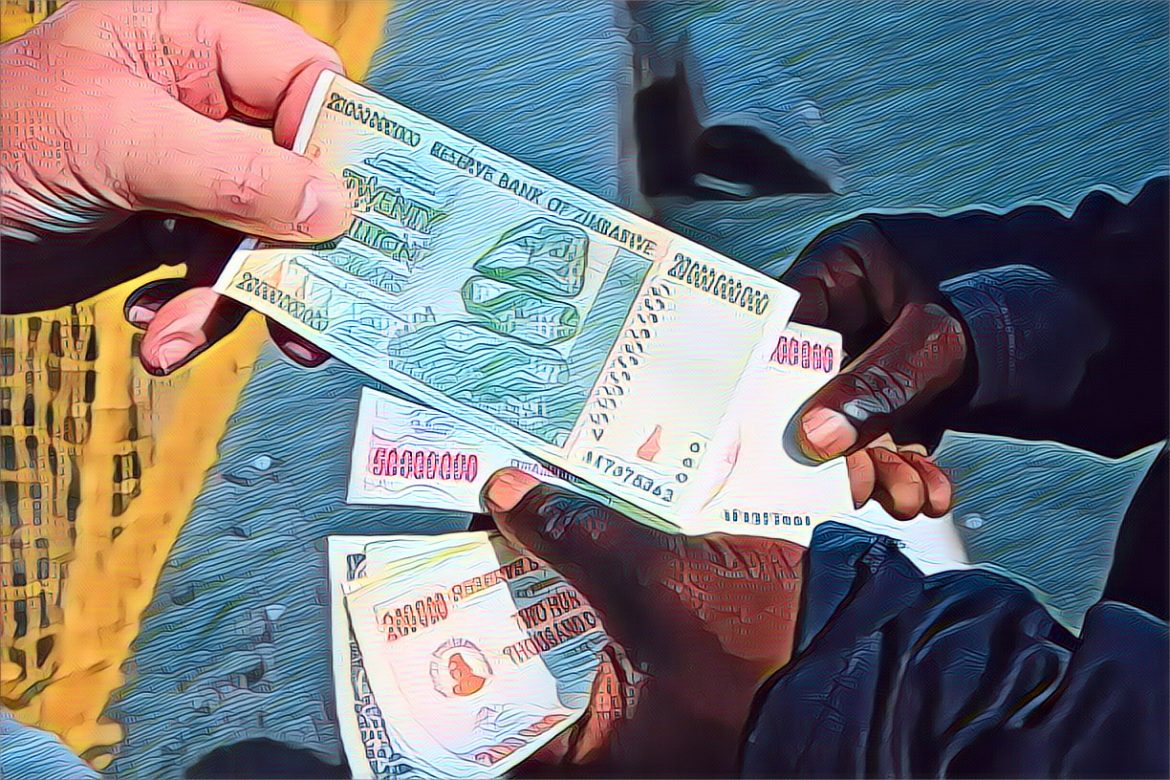Zimbabwe is working on a new plan to stabilize its local currency and curb inflation, which has been soaring above 300% for months. The plan involves linking the exchange rate to hard assets such as gold and creating a currency board, Finance Minister Mthuli Ncube said on Monday.
The Zimbabwean dollar has fallen about 40% since the start of the year, hurt by increased foreign-currency demand from civil servants being paid December bonuses and weaker commodity prices denting inflows. Last week President Emmerson Mnangagwa said authorities were looking to introduce a “structured currency”, without explaining how that would work, and the central bank governor said that work was ongoing.
“The idea going forward is to make sure that we manage the growth of liquidity which has a high correlation to money supply growth and inflation. The way to do that is to link the exchange rate to some hard asset such as gold,” said Ncube.
“To do that you have to have some sort of currency board type system in place where the growth of the domestic liquidity is constrained by the value of the asset that is backing the currency,” he said in a press briefing.
More announcements will come in due course, he said, adding that he believed the new measures would offer “a lasting solution to the currency volatility”.
The Southern African country is still scarred by memories of hyperinflation under longtime leader Robert Mugabe. The government relaunched a local currency in 2019 after a decade of dollarisation, but it rapidly lost value and authorities reauthorised the use of foreign currencies in domestic transactions soon after.
Zimbabwe is not the first country to consider a gold-backed currency. In 2019, Venezuela’s opposition leader Juan Guaido proposed a similar idea to restore confidence in the bolivar, which had also been ravaged by hyperinflation. However, the plan never materialized due to political and legal obstacles.
A currency board is a monetary system that pegs the local currency to a foreign currency or a basket of currencies and requires the central bank to hold enough reserves to cover the entire money supply. Currency boards are often seen as a way to impose fiscal discipline and prevent excessive money printing, but they also limit the central bank’s ability to respond to economic shocks.
Some analysts have expressed skepticism about Zimbabwe’s plan, saying that it would require a high level of transparency and accountability, which are lacking in the country. They also warned that linking the exchange rate to gold could expose the economy to fluctuations in the price of the precious metal, which is often influenced by global factors beyond Zimbabwe’s control.
Zimbabwe has the world’s second-largest gold reserves after South Africa, according to the World Gold Council. However, the country’s gold production has been declining in recent years due to power shortages, smuggling, and underinvestment. In 2020, Zimbabwe produced 19 tonnes of gold, down from 27 tonnes in 2019, according to the central bank.
Source: Reuters


